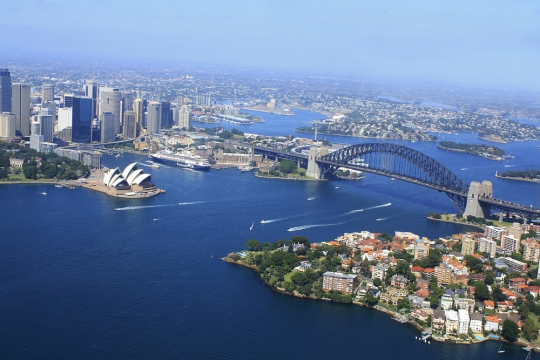Here in the UK, the Brexit beast is still grumbling about immigration controls, with both sides of the debate arguing their case for firmer or fairer systems.
Existing EU rules mean that citizens of the jurisdiction have the right to roam freely through member nations, living, studying and working where they please. Wherever you decide to hang your hat, you can call home and enjoy the same rights as the permanent residents of that country.Although the talks are far from finalised, it looks likely that the UK will leave this system, likely implementing new rules and regulations in the hope of attracting migrants with much needed skills. Those in favour of this new way of operating often refer to Australia’s visa rules as an example of how British borders could be regulated.
Like many other countries around the world, Australia offers a wide range of visas, with different programmes in place for different skills.
Officials in Canberra regularly review the system, ensuring the mix of skills coming in match the needs of Australia’s economy. The number of each type of visa on offer is adjusted yearly. In 2016 for example, there were 190,000 permanent migration places available to hopeful expats. Of these, 128,500 went to skilled workers and 57,000 to family reunions, with a small number reserved for special categories.
The system is complicated and confusing, with a wide array of specific visas each using an equally confounding application system. Some Brits hoping to make the move have found that, even when things go smoothly, it can take more than a year to go from application to approval.
In this year of paperwork and endless emails, expats will have to provide evidence of being in good health and undergo police checks in order to prove they are of good character.

The giant country once had a policy of ‘populate or perish’, encouraging immigration in order to boost a growing economy and fill the vast emptiness of the sparsely populated nation.
Now, the government is tending towards filling specific roles. The department of immigration describes their strategy as being “specifically designed to target migrants who have skills or outstanding abilities that will contribute to the Australian economy.”
This statement differs from the warm welcome generations of expats previously enjoyed when heading down under. Now, it is only people from New Zealand who can enjoy unlimited movement to Australia.
For the rest of the world, a trip down under involves a lot of counting. The Aussie system for working visas relies heavily on the number of points an expat has. To qualify for a visa, the points must total 60 or more.
This points score is calculated on a number of factors including English language skills. All applicants must show a basic proficiency in the language, but more points are awarded if the applicant can show a greater level of ability, ranking “proficient” or “superior”.
Age is another limiting factor. The ideal candidate is between 25 and 32; this score alone can net an expat half the required points. Anyone over the age of 50 has already topped out of the process and anyone over 45 will start with zero points on their card.
The most points, however, can be gained from the qualifications and experience category, with some visa subclasses requiring further detail on the exact occupation. Although you may find your job role listed on the ‘approved’ list, Australia may cap the number of visas issued for these exact positions. Accountants may think that they are in high demand, but visas be will waiting for the first 1,000 approved applicants, while the 1,001st will be disappointed.

Skilled migrant visas usually require some sort of sponsorship, either from an employer or from the state government. It’s easy to quickly become lost in a sea of acronyms and number designations. Mechanics are hunting for 189s, others are on 489s, waiting to convert them to 190s. What subclass an expat needs is largely decided by their skills and their experience in their field of expertise.
To further complicate the process, the family of a skilled worker can be included on their visa but will still need to satisfy ‘health, character, Australian values, and any English language requirements.’
If you want to boost your points, options are limited. You can’t get younger and simultaneously gain years of experience in your industry. However, studying can be key. A diploma is worth 10 points, but a Bachelor’s degree is worth 15 and a PhD a whopping 20 points. Professional or trade qualifications can further increase your score, particularly if they are earned in Australia when residing on a previous visa. If English is not your first language, keep brushing up, as ‘superior English’ is worth 20 points.
If your partner also qualifies for a skilled migrant visa, you will find it more likely that your visa will be approved.
Even with all the points in the world, there are pitfalls to be wary of and shortcuts available to the wise. With such a wide range of visas, it is impossible to go through every tip here as there are few catch-all solutions.
The best advice we have heard from existing and potential expats is to employ the services of an Australian visa agent. Finding a reputable agent means you can benefit from the experience of others, making sure the choices you make are informed and sensible.
Have you lived in Australia? Share your experiences in the comments below, or answer the questions here to be featured in an interview!

